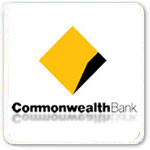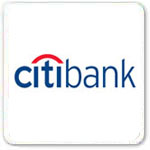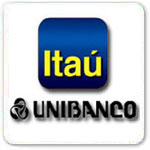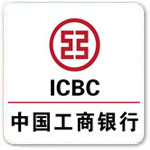When most mainstream media outlets discuss conspiracy theories, it is usually to debunk the views of dissenting and critical thinkers who are routinely denounced as simplistic, paranoid or worse.
You have seen the mantra questioning their motives and conclusions as if the idea of people or officials acting together to advance their interests in illegal ways is something new in history.
Until recently, US press outlets characterized conspiracy arguments as rants that lacked any factual basis or engaged in guilt by association or stretching the facts.
The only conspiracy charges they tended to look at uncritically were criminal complaints against the Mafia under anti-racketeering statutes like the RICO Laws. In such cases, normal concerns to protect the rights of defendants didn’t apply when hearsay evidence was permitted.
But now, four years after the financial crisis, prosecutors have finally discovered what critics have been alleging repeatedly: that big banks were engaging in secretive, illegal and conspiratorial practices to rig baseline interest rates and manipulate credit markets.
It has now been admitted that traders at two major financial institutions were fixing LIBOR-the London Interbank Offered Rate, used to set the interest rates of $800 trillion worth of financial products, including credit cards and mortgages.
That figure again: $800 trillion!
The banks: Barclays and UBS. At first, regulators got them to agree to pay fines in so-called settlements, which are viewed by these institutions as a cost of doing business.
Barclays shelled out $450 million, but UBS went further paying a whopping $1.5 billion fine. They also admitted to fraud and bribery. (Usually banks settle such complaints with out any admission of responsibility).
The Brits took the money, but US prosecutors went further and also lodged criminal charges against two former UBS senior traders for the Libor manipulation. They are the first individuals to be charged in what Reuters called “the wide-ranging investigation that involves more than a dozen big banks.”
The practices were “absolutely rampant” between 2005 and 20 10, according to the Daily Beast which also noted:
“Both the Barclays and UBS settlements show a combination of systemic corruption-senior officials who did not seem to care about illegal activity going on-and a tight-knit, foulmouth fraternity among the traders themselves. While the Barclays boys talked about buying each other Bollinger, (ie. pricey champagne), the UBS fixers deployed nicknames, profanity, and a total disregard for the fact that their communications with each other might one day be made public."
• Said a Broker to a Trader: “Mate your getting bloody good at this Libor game...think of me when yur on your yacht in Monaco won’t yu.”
• Said The Man Called “Trader A:” I need you to keep it as low as possible..if you do that…I’ll pay you, you know, “$50,000, $100,000 dollars.. whatever you want…I’m a man of my word.”
Notice these violations of banking regulations are always presented as victimless crimes or crimes that only affect investors, never people who lose jobs or homes or how they impact on the economy worldwide.
Most of the coverage does not link all these financial crimes to the larger effect and impact they have had on the world.
Last June, Congresswoman Maxine Waters tried to raise these issues with Ben Bernanke, the Chairman of the Federal Reserve Bank asking him to take action. He retreats into bland and passionless responses. It didn’t seem he was in much of a hurry to anything.
Months later, other regulators in Britain and the US acted but in a low-key way.
These prosecutions are highly selective and show a real unwillingness to crack down on bank crimes, even when they involve drug running.
Former NY State Governor Eliot Spitzer, and a former prosecutor who went after Wall Street commented on a refusal to go after the HSBC Bank on these charges, “"The decision to not prosecute in this instance belies everything that the government has ever done with regard to drug prosecutions everywhere.
"If the law doesn’t apply equally to everybody, then you don’t really have a system of law.
It’s not just the banks or governments. The media seems to just be admitting that many banks are run like criminal enterprises.
I and other in the independent media have been making these points for years, as the website Zero Hedge noted:
•Fraud caused the Great Depression and the current financial crisis, and the economy will never recover until fraud is prosecuted
•Criminal fraud is the main business model adopted by the giant banks.
•Largely because they are out-of-control criminal enterprises, economy cannot recover unless the big banks are broken up.
•The Obama administration has made it official policy not to prosecute fraud. Indeed, the "watchdogs" in D.C. are so corrupt that they are as easily bribed as a policeman in a third world banana republic.
•Instead of prosecuting, the government throws money at them
•As Nobel prize winning economist Joseph Stiglitz noted years ago:
"The system is set so that even if you're caught, the penalty is just a small number relative to what you walk home with.
The fine is just a cost of doing business. It's like a parking fine. Sometimes you make a decision to park knowing that you might get a fine because going around the corner to the parking lot takes you too much time."
Slowly, these concerns are working their way into the media but without much of the larger framework presented in a dire global economic report on just how deeply the world economy has been wounded.
The UN reported that it will take until 2017 before jobs come back to pre crisis levels, if they ever do, Global recession could easily deepen given the problems with the US, European and, now, the Chinese economies.
Much of this tracks back to the financial crimes that are just officially being acknowledged. It’s important to remember the warnings of Vanity Fair’s Graydon Carter who referred to the criminal practices of big bankers, when he said: “Never have so few done so much to so many.”
The banks: Barclays and UBS. At first, regulators got them to agree to pay fines in so-called settlements, which are viewed by these institutions as a cost of doing business.
Barclays shelled out $450 million, but UBS went further paying a whopping $1.5 billion fine. They also admitted to fraud and bribery. (Usually banks settle such complaints with out any admission of responsibility).
The Brits took the money, but US prosecutors went further and also lodged criminal charges against two former UBS senior traders for the Libor manipulation. They are the first individuals to be charged in what Reuters called “the wide-ranging investigation that involves more than a dozen big banks.”
The practices were “absolutely rampant” between 2005 and 20 10, according to the Daily Beast which also noted:
“Both the Barclays and UBS settlements show a combination of systemic corruption-senior officials who did not seem to care about illegal activity going on-and a tight-knit, foulmouth fraternity among the traders themselves. While the Barclays boys talked about buying each other Bollinger, (ie. pricey champagne), the UBS fixers deployed nicknames, profanity, and a total disregard for the fact that their communications with each other might one day be made public."
The Wall Street Journal couldn’t ignore the story and reported that regulators “alleged” a vast conspiracy, even after the banks admitted to some of what they had done. Rupert Murdoch couldn’t resist his tabloid training by having two UBS stars quoted in large type on the front page:
• Said a Broker to a Trader: “Mate your getting bloody good at this Libor game...think of me when yur on your yacht in Monaco won’t yu.”
• Said The Man Called “Trader A:” I need you to keep it as low as possible..if you do that…I’ll pay you, you know, “$50,000, $100,000 dollars.. whatever you want…I’m a man of my word.”
Notice these violations of banking regulations are always presented as victimless crimes or crimes that only affect investors, never people who lose jobs or homes or how they impact on the economy worldwide.
Most of the coverage does not link all these financial crimes to the larger effect and impact they have had on the world.
Last June, Congresswoman Maxine Waters tried to raise these issues with Ben Bernanke, the Chairman of the Federal Reserve Bank asking him to take action. He retreats into bland and passionless responses. It didn’t seem he was in much of a hurry to anything.
Months later, other regulators in Britain and the US acted but in a low-key way.
These prosecutions are highly selective and show a real unwillingness to crack down on bank crimes, even when they involve drug running.
Former NY State Governor Eliot Spitzer, and a former prosecutor who went after Wall Street commented on a refusal to go after the HSBC Bank on these charges, “"The decision to not prosecute in this instance belies everything that the government has ever done with regard to drug prosecutions everywhere.
“I mean, when you think about the way they behave toward ordinary people who get caught up in drug cases, where they seize all your property and they use absolutely the maximum sentences they can possibly avail themselves of, and in this case they catch a bank that launders billions of dollars for Colombian and Mexican drug cartels … for years on end, and they can’t find something to charge these people with?"
"If the law doesn’t apply equally to everybody, then you don’t really have a system of law.
It’s not just the banks or governments. The media seems to just be admitting that many banks are run like criminal enterprises.
I and other in the independent media have been making these points for years, as the website Zero Hedge noted:
•Fraud caused the Great Depression and the current financial crisis, and the economy will never recover until fraud is prosecuted
•Criminal fraud is the main business model adopted by the giant banks.
•Largely because they are out-of-control criminal enterprises, economy cannot recover unless the big banks are broken up.
•The Obama administration has made it official policy not to prosecute fraud. Indeed, the "watchdogs" in D.C. are so corrupt that they are as easily bribed as a policeman in a third world banana republic.
•Instead of prosecuting, the government throws money at them
•As Nobel prize winning economist Joseph Stiglitz noted years ago:
"The system is set so that even if you're caught, the penalty is just a small number relative to what you walk home with.
The fine is just a cost of doing business. It's like a parking fine. Sometimes you make a decision to park knowing that you might get a fine because going around the corner to the parking lot takes you too much time."
Slowly, these concerns are working their way into the media but without much of the larger framework presented in a dire global economic report on just how deeply the world economy has been wounded.
The UN reported that it will take until 2017 before jobs come back to pre crisis levels, if they ever do, Global recession could easily deepen given the problems with the US, European and, now, the Chinese economies.
Much of this tracks back to the financial crimes that are just officially being acknowledged. It’s important to remember the warnings of Vanity Fair’s Graydon Carter who referred to the criminal practices of big bankers, when he said: “Never have so few done so much to so many.”
Former NY State Governor Eliot Spitzer, and a former prosecutor who went after Wall Street commented on a refusal to go after the HSBC Bank on these charges, “"The decision to not prosecute in this instance belies everything that the government has ever done with regard to drug prosecutions everywhere."
Top Ten Largest Banks in the World
Banks are the backbone for economic development and currency flow in a country. For running financial procedures correctly, more and more banks are being incorporated around the world. With the increasing ratio in banking institutions in world, now people can manage their financial matters with convenience and ease. Some banks operate within a country while others have large network across the whole world. Therefore, banks’ sizes vary according to their market capital. Want to know more about what are largest banks in the world? Explore the list below:
 10. The Commonwealth Bank of Australia (Commbank): World’s tenth largest bank is called Commonwealth Bank, an Australian financial institute established in 1991, having its headquarters in Sydney Australia and businesses in major countries of the world. Commbank has a total market capital is $82.62 billion USD. The businesses network of the bank has been spread across China, UK, USA, Asia, and Fiji, New Zealand. 10. The Commonwealth Bank of Australia (Commbank): World’s tenth largest bank is called Commonwealth Bank, an Australian financial institute established in 1991, having its headquarters in Sydney Australia and businesses in major countries of the world. Commbank has a total market capital is $82.62 billion USD. The businesses network of the bank has been spread across China, UK, USA, Asia, and Fiji, New Zealand. | |
 9. The Citigroup (Citi): At ninth place in world largest banks is Citigroup also named as Citi, a US financial services provider came on stage with world’s largest merger in October 1998. The company’s headquarters are situated in Manhattan, New York however their bank networks have been spread in 140 countries worldwide. With market capital of $86.67 billion USD, Citi is at number nine. 9. The Citigroup (Citi): At ninth place in world largest banks is Citigroup also named as Citi, a US financial services provider came on stage with world’s largest merger in October 1998. The company’s headquarters are situated in Manhattan, New York however their bank networks have been spread in 140 countries worldwide. With market capital of $86.67 billion USD, Citi is at number nine. | |
 8. Itaú Unibanco: Itaú Unibanco, a Brazilian public banking company takes eighth position in largest banks of world. The bank was established as result of merger of Unibanco and Banco Itaú in the year 2008. Itaú Unibanco headquarters are located in São Paulo Brazil and its network has been spanned across many nations including United States, UAE, UK, Asia and Europe. The total market capital is $88.18 billion USD. 8. Itaú Unibanco: Itaú Unibanco, a Brazilian public banking company takes eighth position in largest banks of world. The bank was established as result of merger of Unibanco and Banco Itaú in the year 2008. Itaú Unibanco headquarters are located in São Paulo Brazil and its network has been spanned across many nations including United States, UAE, UK, Asia and Europe. The total market capital is $88.18 billion USD. | |
 7. Bank of China (BOC): The Bank of China takes the seventh rank as largest bank, and also abbreviated as “BOC”. It was established in 1942 and its headquarters are based in Beijing, China. Network of operations includes UK, USA, Canada, Australia, Asia, UAE and Europe. Its rank among largest companies in world is 21st and market capitalization is $128.80 billion USD. 7. Bank of China (BOC): The Bank of China takes the seventh rank as largest bank, and also abbreviated as “BOC”. It was established in 1942 and its headquarters are based in Beijing, China. Network of operations includes UK, USA, Canada, Australia, Asia, UAE and Europe. Its rank among largest companies in world is 21st and market capitalization is $128.80 billion USD. | |
 6. JP Morgan Chain: Another American banking chain comes at sixth place. By assets, the bank is top largest locally. The company was established in year 2000 as a merger of two companies. Its headquarters are in Manhattan, New York while its serving goes to many destinations across the world. The market capital value is $140 billion USD. 6. JP Morgan Chain: Another American banking chain comes at sixth place. By assets, the bank is top largest locally. The company was established in year 2000 as a merger of two companies. Its headquarters are in Manhattan, New York while its serving goes to many destinations across the world. The market capital value is $140 billion USD. | |
 5. Agricultural Bank of China (ABC): At number fifth, it is Agricultural Bank of China, also known as ABC and has a customer base of 320 million. The company came into being in 1951 and has its headquarters in Beijing. The network goes across nations like Hong Kong, Sydney, Singapore, London, Tokyo and Frankfurt. The market capital is $141.73 billion USD. 5. Agricultural Bank of China (ABC): At number fifth, it is Agricultural Bank of China, also known as ABC and has a customer base of 320 million. The company came into being in 1951 and has its headquarters in Beijing. The network goes across nations like Hong Kong, Sydney, Singapore, London, Tokyo and Frankfurt. The market capital is $141.73 billion USD. | |
 4. The HSBC: The UK bank takes the fourth place among largest banks in the world. British financial service provider is known as HSBC Holdings plc and established in 1991 in UK. The headquarters are located in London, UK while total number of operational offices is 7200 across 85 countries worldwide. HSBC has market capital of $150.90 billion USD. 4. The HSBC: The UK bank takes the fourth place among largest banks in the world. British financial service provider is known as HSBC Holdings plc and established in 1991 in UK. The headquarters are located in London, UK while total number of operational offices is 7200 across 85 countries worldwide. HSBC has market capital of $150.90 billion USD. | |
 3. Wells Fargo: Wells Fargo & Company holds the top third position another American chain offering different financial services globally. The bank’s headquarters are located in San Francisco, California USA. According to 2012, the company has 270,000 staff members while customer base is 70 million worldwide. The market capital is $160.72 billion USD. 3. Wells Fargo: Wells Fargo & Company holds the top third position another American chain offering different financial services globally. The bank’s headquarters are located in San Francisco, California USA. According to 2012, the company has 270,000 staff members while customer base is 70 million worldwide. The market capital is $160.72 billion USD. | |
 2. China Construction Bank (CCB): The world’s second largest bank is China Construction Bank, situated in Beijing China and owned by republic of china. The bank was established in 1954 and has 13,629 local branches network. International outlets span across countries like South Africa, USA, UK and Australia. The total market capital is $195.85 billion USD. 2. China Construction Bank (CCB): The world’s second largest bank is China Construction Bank, situated in Beijing China and owned by republic of china. The bank was established in 1954 and has 13,629 local branches network. International outlets span across countries like South Africa, USA, UK and Australia. The total market capital is $195.85 billion USD. | |
 1. Industrial and Commercial Bank of China (ICBC): ICBC is declared as world’s largest bank with a market capital of $240.95 billion USD. The bank was established in start of year 1984 and its headquarters are located in Beijing. It has 18,000 branches network globally including 106 international branches. Members of its staff reached to 394,500 in year 2011. 1. Industrial and Commercial Bank of China (ICBC): ICBC is declared as world’s largest bank with a market capital of $240.95 billion USD. The bank was established in start of year 1984 and its headquarters are located in Beijing. It has 18,000 branches network globally including 106 international branches. Members of its staff reached to 394,500 in year 2011. |
No comments:
Post a Comment